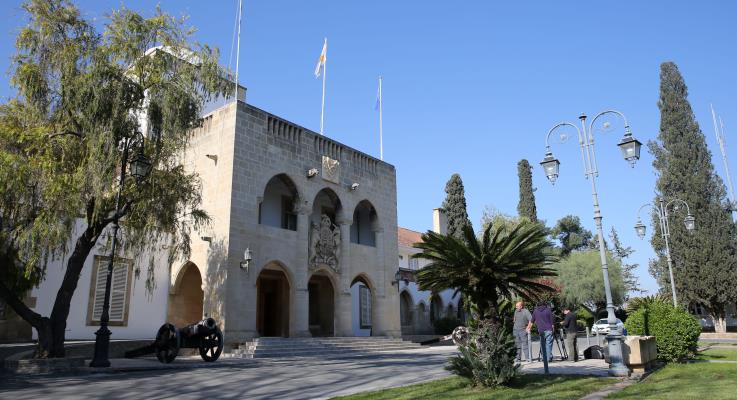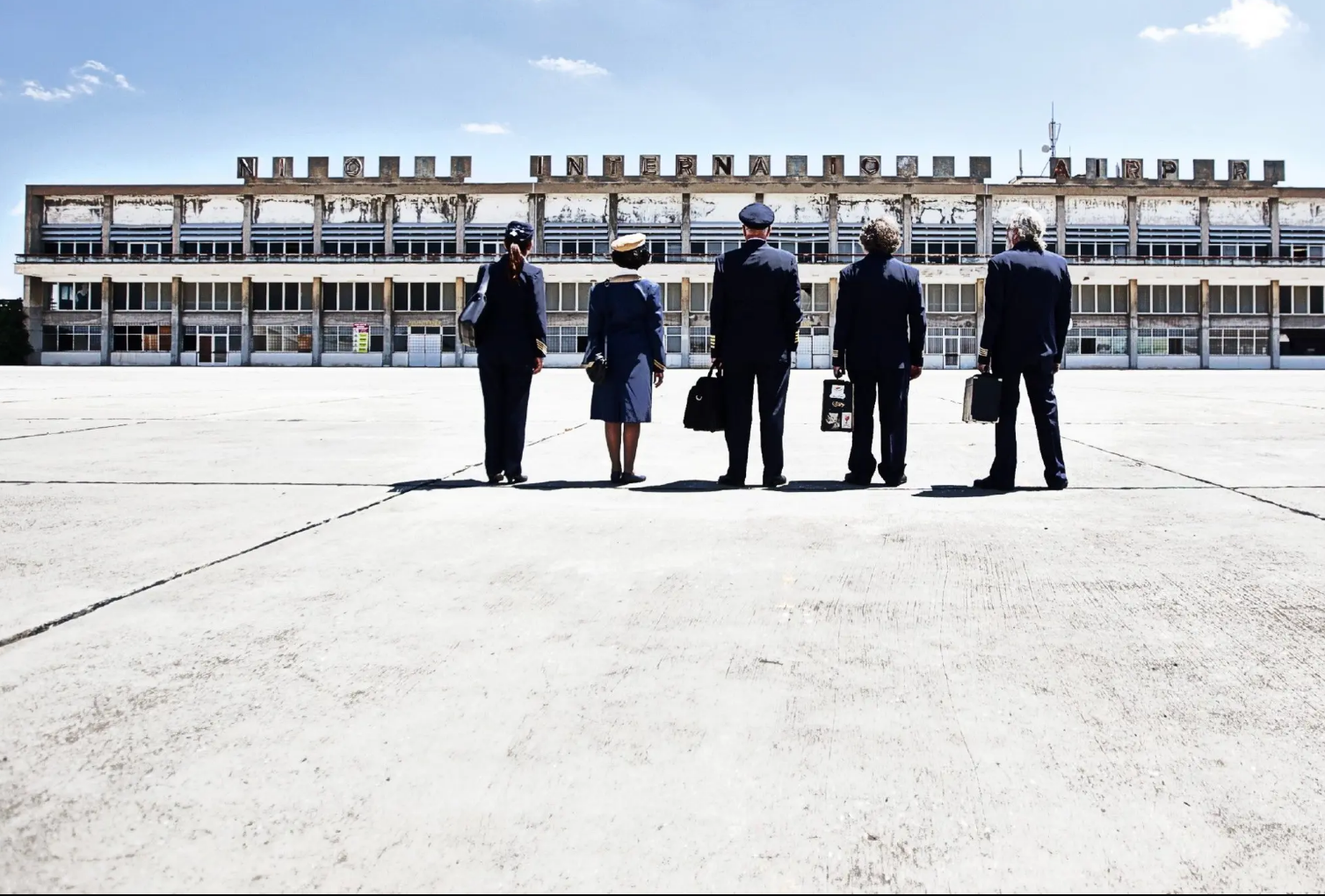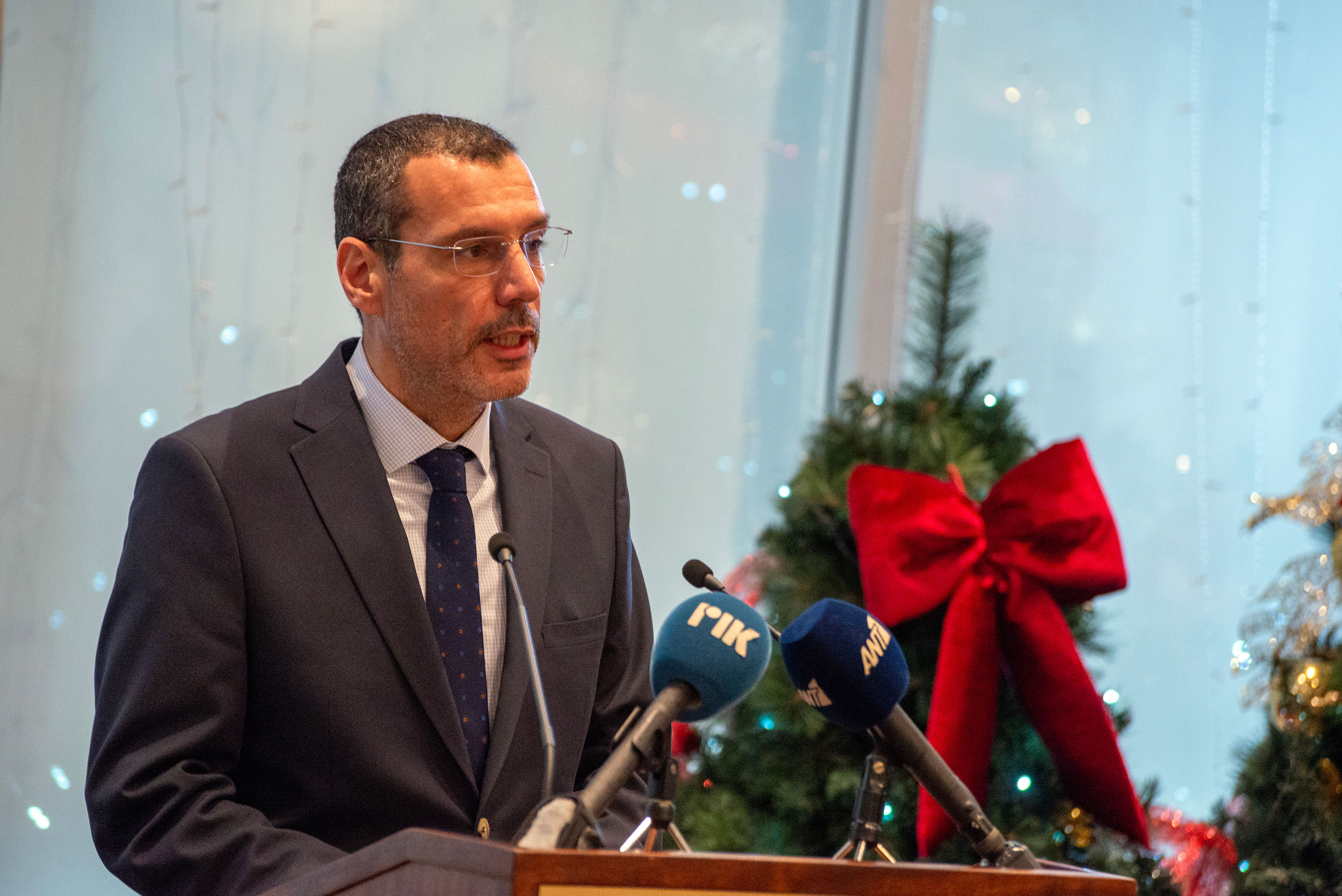Cyprus President Nikos Christodoulides’ vision for the country’s future, unveiled on Wednesday at the presidential palace, has sparked both praise and concern. The ambitious plan, which focuses heavily on economic growth, infrastructure and security, was met with a mix of support and sharp criticism from various political groups.
Government supporters have lauded the president’s proposals, while opposition parties, particularly from Akel and Disy, have been quick to voice their reservations. The early criticism highlighted concerns about the substance of the speech and whether the promises made would actually be fulfilled.
One of the more positive reactions came from the greens. While they acknowledged the president’s achievements, they were also quick to raise concerns. They welcomed the president’s decision to detach the special allowance (EEE) from disability benefits, a proposal they had first made in 2014. The group also praised the start of the compensation process for those affected by the 2013 banking crisis, a long-fought cause that is finally moving forward.
However, the day was not without its criticisms. A key issue raised by main opposition parties Akel and Disy was the perceived lack of tangible action in the president’s proposals. Many Cypriots continue to view the government with scepticism, citing past failures to deliver on key promises. The president’s speech, which included the announcement of large infrastructure projects such as the Nicosia ring road and offshore drilling in the ‘Electra’ block, was seen by some as more about communication tactics than concrete plans. Critics argue these initiatives, while grand in scale, are not enough to restore confidence in a government that has struggled with credibility in the past.
Equally disappointing for many was the absence of important details regarding promised legal reforms. The separation of powers of the attorney-general, a promise made during the election campaign, was notably absent from the speech. The president briefly mentioned the reform of the legal and audit services but failed to elaborate on how these changes would address corruption or improve transparency. Opposition parties, including Akel and the green party, expressed frustration that the government did not take the opportunity to introduce legislative changes to strengthen the anti-corruption authority or provide the audit service with greater financial independence.
Environmental issues, too, were conspicuously absent from the president’s 2025 plan. Cyprus currently faces multiple legal challenges before European bodies over violations of EU environmental regulations. Yet, in his speech, the president made no mention of how the government plans to address urgent environmental concerns, including the protection of the Akamas region, sustainable development and animal welfare. Critics argue that these issues must be central to any long-term policy for the island’s future.
Tax reforms were another point of contention. The proposed green tax on fuel, linked to carbon trading, raises concerns about the financial strain it could place on households already struggling with rising living costs. Critics argue that without a green fund to offset the impact, the tax could disproportionately affect ordinary citizens and businesses. In a climate of high living costs and a shortage of affordable housing, many believe the government’s focus on large-scale infrastructure projects is missing the mark.
The failure to address key societal issues, such as raising the minimum wage, combating profiteering, or ensuring affordable housing, also drew criticism. Many people feel the government is out of touch with the daily struggles of ordinary citizens. The absence of any mention of pension support or the challenges faced by vulnerable groups only deepens this sense of disconnection.
On a more positive note, parties such as Edek and Diko welcomed the president’s vision. They pointed to the €1.3 billion earmarked for infrastructure projects, including motorway expansions, port upgrades and housing schemes, as key drivers for Cyprus’ economic growth. The new education and healthcare initiatives, including an €8.5 million children’s oncology clinic, were also highlighted as significant steps forward. These measures, the president said, would not only help Cyprus economically but also raise the country’s standing internationally, especially considering its upcoming EU presidency and preparations for Schengen membership.







Click here to change your cookie preferences